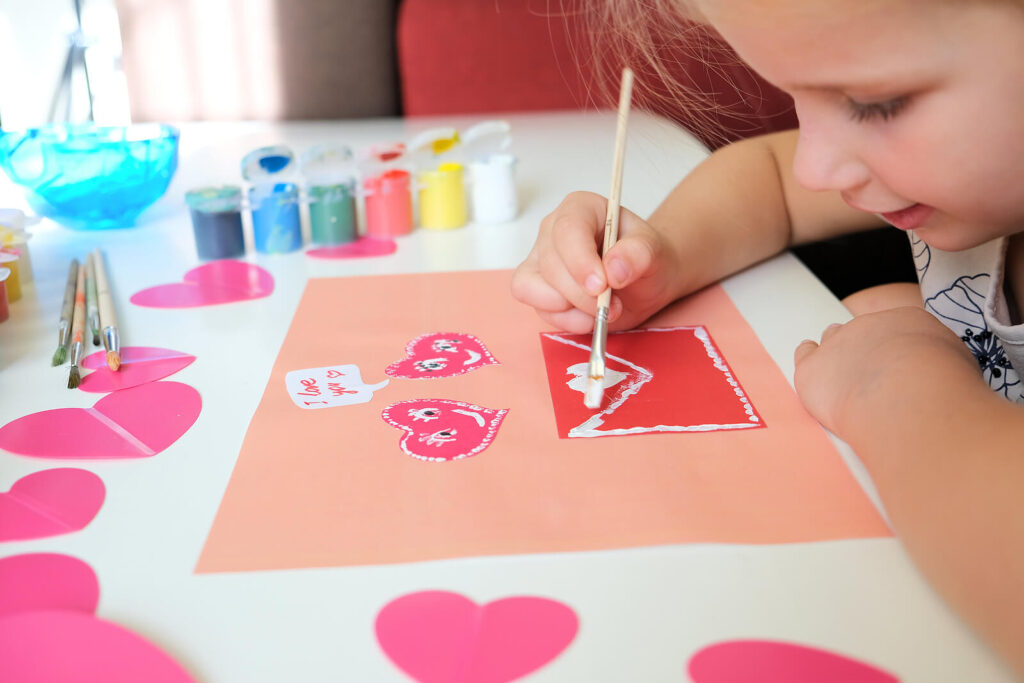Valentine’s Day often brings an emphasis on love and friendships, making it a perfect time to reflect on the kinds of relationships your child is forming. While friendships are vital for a child’s social development, not all friendships are healthy. In fact, some can be toxic, negatively impacting your child’s self-esteem and emotional well-being. As parents, recognizing the signs of toxic friendships and understanding the underlying reasons behind these dynamics can help guide your child toward healthier relationships.

What Is a Toxic Friendship?
A toxic friendship is one that consistently harms a child’s emotional, mental, or social health. These relationships may involve bullying, manipulation, or a lack of mutual respect. Toxic friends might:
- Bully or belittle your child.
- Exclude them or make them feel unworthy.
- Use them for personal gain or amusement.
- Undermine their confidence through constant criticism or mean-spirited teasing.
Why Do Kids Gravitate Toward Toxic Friendships?
To better understand why some children find themselves in toxic friendships, we can look to attachment theory. Attachment patterns formed in early childhood can influence how kids approach relationships. For instance:
- Insecure attachment: Children with insecure attachment may feel unworthy of love and attention, leading them to seek approval from peers, even if those peers are mean or dismissive.
- Seeking familiarity: Kids who grew up witnessing aggression or dismissiveness may unconsciously gravitate toward friends who exhibit similar behaviors, as these dynamics feel familiar, even if they’re unhealthy.

Here are some specific scenarios that reflect these patterns:
- Attraction to Aggressive or Bullying Peers: Children may be drawn to friends who are aggressive or controlling because these individuals exude power or confidence. This can appeal to kids who feel unsure of themselves, hoping to “borrow” some of that perceived strength. Unfortunately, this dynamic often leaves your child feeling powerless and hurt.
- Passive Behavior and People-Pleasing: Some kids adopt a passive role in friendships, allowing others to take advantage of them. These children may struggle with setting boundaries, fearing that standing up for themselves will lead to rejection. They might become the “helper” or “giver” in relationships to maintain approval.
- Choosing Popular but Hurtful Friends: Popularity can be alluring, especially in environments like schools where social hierarchies are emphasized. Kids may overlook hurtful behavior, such as exclusion or teasing, to stay within the orbit of a popular friend group. This choice often stems from a desire to fit in or avoid being ostracized.
- Approval-Seeking Tendencies: Many children seek validation from their peers, especially if they lack self-confidence or receive inconsistent support at home. They might ignore red flags in a friendship to maintain the approval of someone they admire, even if it’s at their own expense.
How to Help Your Child Navigate Healthy Friendships
As a parent, you play a crucial role in helping your child recognize and build healthy relationships. Here are some strategies:
- Teach Them About Healthy Boundaries: Explain that friendships should be based on mutual respect, kindness, and support. Help your child understand that it’s okay to say “no” and set boundaries when they feel uncomfortable.
- Encourage Open Communication: Create a safe space for your child to share their feelings about their friends. Ask open-ended questions like, “How do you feel when you’re around [friend’s name]?” This can help them reflect on the quality of their friendships.
- Model Healthy Relationships: Children often learn by observing their parents. Demonstrate respectful, supportive, and reciprocal relationships in your own life, whether with friends, family, or colleagues.
- Boost Their Self-Esteem: Help your child build confidence by encouraging their strengths and celebrating their unique qualities. When kids feel good about themselves, they’re less likely to tolerate toxic behavior from others.
- Role-Play Scenarios: Practice responses to common situations, such as how to handle a friend who teases them or how to politely decline to participate in something they’re uncomfortable with. Role-playing can give them tools to navigate challenging interactions.
- Encourage Diverse Friendships: Help your child expand their social circle by participating in activities or groups where they can meet peers with shared interests. This reduces their dependence on one friend or group and broadens their perspective on what healthy friendships look like.
When to Seek Professional Support: Child Counseling in Katy, TX
If your child continues to struggle with toxic friendships or shows signs of low self-esteem, anxiety, or depression, consider seeking help from a child therapist. At West Houston Counseling Center, we specialize in helping children and families navigate the complexities of relationships, providing tools to foster emotional resilience and healthy connections.

A Loving Reminder This Valentine’s Day
Valentine’s Day is a wonderful opportunity to remind your child that they are deserving of love and respect, both in friendships and beyond. By teaching them how to recognize toxic dynamics and encouraging healthy relationships, you’re giving them a gift that will benefit them for a lifetime.
If you’d like to learn more about how we can support your child’s social and emotional development, contact us at West Houston Counseling Center today. Together, we can take a deep dive into your child’s attachment style, interpersonal patterns, belief systems, and sense of self to help them build the confidence and skills they need to thrive in their friendships and beyond.
- Contact us here.
- Learn more about our child therapy services.
- Discover how we can help your child build meaningful relationships.
Comprehensive Counseling Services in Katy and Surrounding Areas
At WHCC, we provide more than just therapy for children. Our services support individuals, couples, and families at every stage of life. We offer adult therapy to promote personal growth, mental well-being, and resilience. Teen therapy helps adolescents develop healthy coping strategies for life’s challenges. Our child behavioral therapy supports parents and children in managing emotional and behavioral concerns. Couples therapy and marriage counseling strengthen communication, rebuild trust, and foster deeper connections. We also offer ADHD coaching to help children, teens, and adults develop focus, organization, and time management skills. Additionally, our trauma therapy supports healing from past experiences, and LENS neurofeedback provides an innovative approach to managing anxiety, ADHD, and other conditions.

